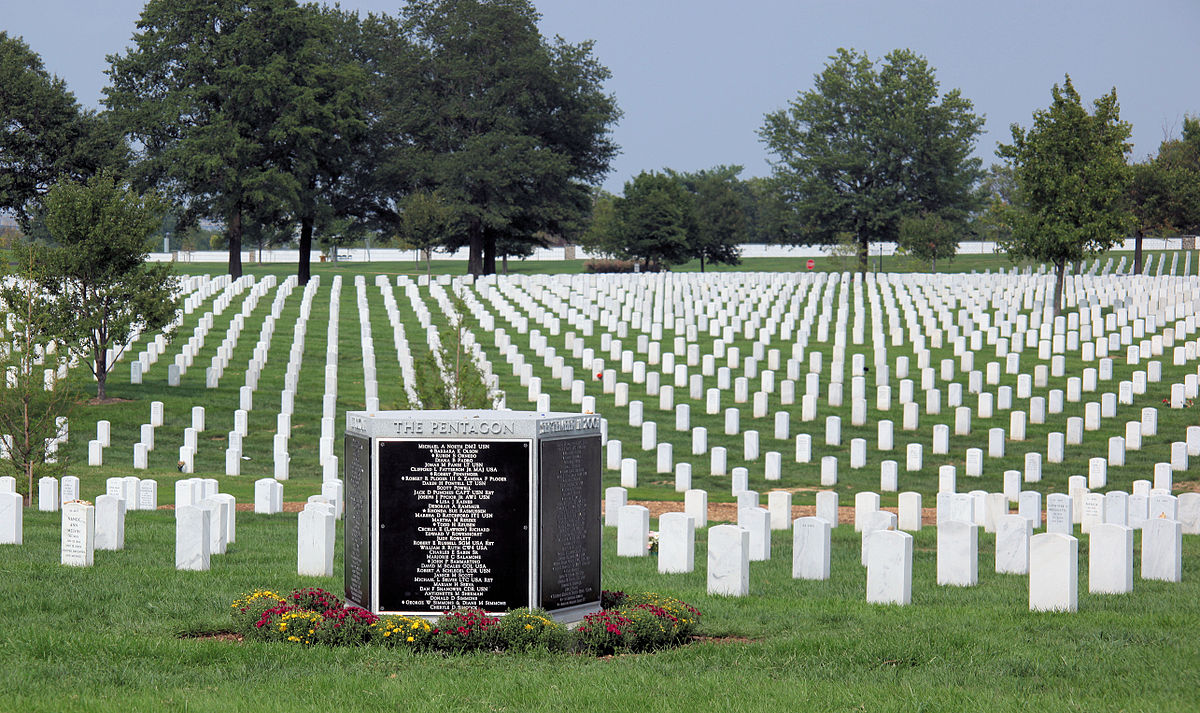Travel
Many options for visiting 9-11 sites: memorial, museum, tours, tribute centre, apps

Looking northwest at the southeast corner of the Victims of Terrorist Attack on the Pentagon Memorial at Arlington National Cemetery in Arlington, Virginia, in the United States. Photo by Tim1965 / Wikimedia Commons.
NEW YORK—Out-of-towners and locals alike have shown enormous interest in sites connected to the Sept. 11th attacks. More than 700,000 people from all 50 states and 131 countries have been to the National Sept. 11 Museum since it opened May 21. More have come from New York than any other state, but the museum also hosts so many international tourists that you can’t even identify all the languages being spoken.
In addition, nearly 15 million people have visited the Sept. 11 Memorial since it opened three years ago on the footprints of the twin towers. That’s 1 million more a year than visit the Statue of Liberty.
And yet the very idea of 9-11 tourism remains controversial to some. Some New Yorkers are still so traumatized they’ve avoided the area. Others think 9-11 tourism is unseemly, however respectful the intent. Indeed, the memorial plaza could now be mistaken for a leafy urban park, with visitors taking smiling selfies or leaning on bronze parapets that bear the names of the dead. And yet, one could argue that recreating a sense of normalcy downtown is part of the 9-11 story, too.
“There’s this tension between a nice park where you can come out and have your lunch, but you might be sitting next to a family member paying respects to a loved one,” said Brenda Berkman, a retired fire lieutenant who was there on Sept. 11, 2001, and worked on the recovery effort. Berkman now leads guided tours from the 9-11 Tribute Center.
For those who do want to visit, pay respects or learn more about the events of 13 years ago, here are some options.
9-11 Memorial
The memorial’s waterfalls and twin reflecting pools are set deep in the twin towers’ footprints. The pools are surrounded by panels inscribed with the names of the nearly 3,000 people who perished in the attacks, including those who died at the site, on the planes and at the Pentagon. Also listed are six who died in the 1993 Trade Center bombing.
Hundreds of oak trees line the plaza, but be sure to find a tall, callery pear tree called the Survivor Tree, grown from an 8-foot stump found in the rubble of the fallen towers.
The memorial is free and open daily, 7:30 a.
m.-9 p.m.; http://www.911memorial.org/visit-911-memorial . Visitor passes and security checks are no longer required.
9-11 Memorial Museum
The museum tells the definitive story of the World Trade Center, from construction to destruction to rebirth. Artifacts large and small include tower beams, the Survivors’ Stairs used by hundreds to escape, a wrecked firetruck and shoes worn by a photojournalist who was injured that day. You’ll hear phone messages left by people trapped in the towers, and if you dare peek behind an exhibit labeled “disturbing,” you’ll see photos of those who jumped. Numerous videos and photos show Lower Manhattan before the attacks, as the planes hit, while the towers burned, and after they fell as enormous debris clouds covered downtown.
Tissue boxes around the galleries testify to the museum’s visceral, emotional impact. But some of the simplest exhibits are among the most memorable. Blue squares represent an artist’s effort to remember the sky colour that day. And a massive wall bears this quote from Virgil: “NO DAY SHALL ERASE YOU FROM THE MEMORY OF TIME.”
The museum is open 9 a.m.-9 p.m., with the last entry at 7 p.m. through Sept. 21 (after Sept. 21, 7 p.m. closing). Get timed tickets online in advance to avoid long waits. Admission, $24; http://911memorial.org.
9-11 Tribute Center and tours
In contrast to the large, formal exhibits of the Memorial Museum, the 9-11 Tribute Center is a small, intimate, low-key place. The walls are covered with victims’ photos and missing posters; handmade paper cranes—a symbol of peace—hang over a stairwell. It’s like looking through someone’s scrapbook and sharing memories.
The Tribute Center also offers terrific guided tours of the memorial led by individuals with a connection to Sept. 11th—first responders, survivors, those who lost loved ones. The tours offer personal memories and insights as well as an informed appreciation of the memorial’s design and symbolism. “We try and bring you to that day based on what we witnessed,” Berkman said.
The Tribute Center at 120 Liberty St. is open Monday-Saturday, 10 a.m.-6 p.m.; Sundays 10 a.m.-5 p.m., with walking tours at 11 a.m., noon, 1 p.m., 2 p.m. and 3 p.m. Center admission, $15; tours, $10; combined admission plus tour, $20; http://tributewtc.org.
One World Trade Center
The observatory at One World Trade Center won’t open until next year. But the gleaming skyscraper itself, with its trademark spire and graceful angles, can be seen from all over the city.
Apps
Two free, official apps can help you explore the memorial and museum in person or virtually: the 9-11 Memorial Guide and 9-11 Memorial Audio Guide.
Getting there
Access the 9-11 Museum via Liberty and Greenwich streets, or Fulton and West streets. Nearby subways include the Chambers and Fulton Street stations, which are served by many lines. The E train has a World Trade Center stop.





















